
Donkey
Donkey
Donkey
Are you familiar with donkeys? Many people know about them from seeing them at zoos and farms, and some keep them as domestic animals. Donkeys are not just found in captivity; there are also wild donkeys. Depending on where they live and the species, their fur colors and patterns can vary. Let's learn more about donkeys!
Donkey Basic Infomation
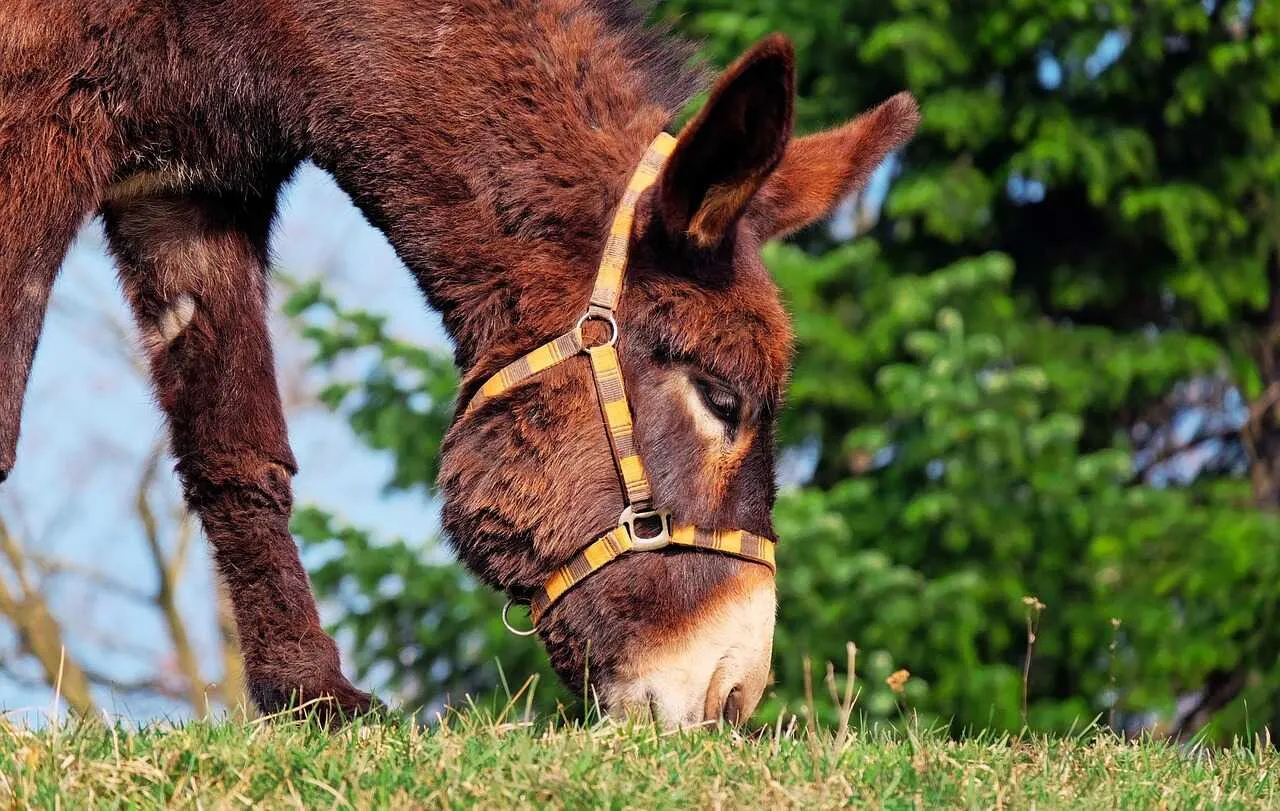
| Property | Value |
|---|---|
| Scientific Name | Equus asinus |
| Taxonomic Status | Accepted |
| Rank | Species |
| Vernacular Names | No Info |
| Kingdom | Animalia |
| Phylum | Chordata |
| Class | Mammalia |
| Order | Perissodactyla |
| Family | Equidae |
| Genus | Equus |
| Habitats | No Info |
| Descriptions | No Info |
| Conservation Status | No Info |
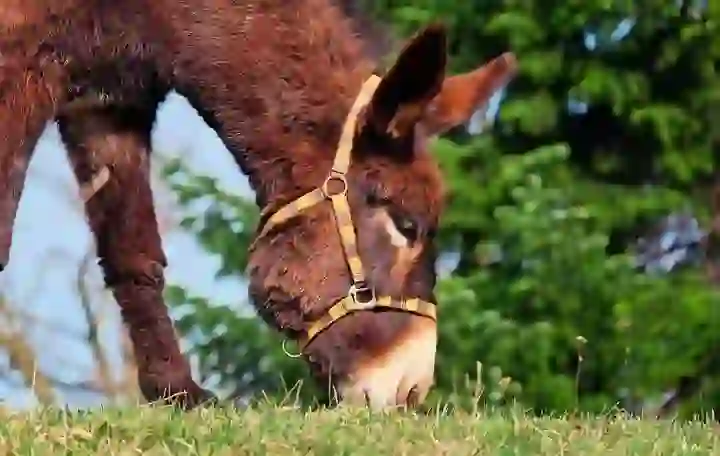
Class: Mammalia, Order: Perissodactyla, Family: Equidae, Genus: Equus, Subgenus: Asinus
Body length: 180-250 cm
Body height: 100-140 cm
Tail length: 30-49 cm
Body weight: 200-500 kg
Donkeys live across the globe, including Africa, the Americas, Eurasia, Oceania, Asia, and Japan.
They are the smallest in the Equidae family and are often mistaken for ponies at zoos. Donkeys come in various colors, including brown, gray, white, pale yellow, and pale red, depending on the species. Some have mottled patterns, stripes, or a cross or single line on their back.
In winter, their fur grows 1.5 times longer than in summer, keeping them warm during cold weather. Their mane varies in color, with some having black or brown manes.
While they are often confused with horses, their tails are quite different. Donkeys have hair only at the end of their tails, whereas horses have hair along the entire tail. This distinction helps tell them apart.
A key characteristic of donkeys is their long ears, reminiscent of rabbits. Because of these long ears, donkeys are sometimes called 'rabbit horses.'
Donkey Q&A

What is the origin of the name 'Donkey'?
In Japanese, 'Donkey' is written as '驢馬' (roba), but it was originally written as '驢' (ro) in classical Chinese. It represented the animal on its own, but when this character was transmitted to Japan, it was appended with '馬' (uma) to indicate that it belongs to the horse family, resulting in '驢馬' (roba). It's unclear whether the change was made to clarify the family connection or to make pronunciation easier.
Though the character '驢' already contains the '馬' radical, leading to some redundancy in '驢馬', it's best not to overthink it.
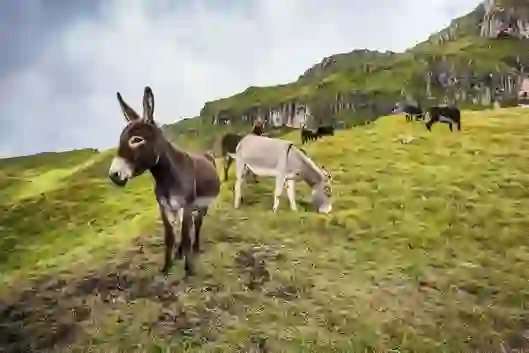
Why do donkeys live where they do?
Wild donkeys inhabit semi-desert regions, rough terrain, rocky landscapes, plains, and mountainous areas. Some species migrate to higher ground in the summer and move to riverbanks or valleys in the winter. Despite their diverse habitats, some regions no longer have any donkeys due to extinction.
Donkeys' hard hooves allow them to navigate rocky areas with ease. They live either alone or in groups, with male-led groups typically consisting of 6 to 12 females and offspring. Some species used to form herds of over 100 individuals.
Donkeys can reach speeds of 40 to 50 km/h over long distances and 60 to 70 km/h over short distances, which is comparable to cars.
Although wild donkeys thrive in harsh environments, domesticated and farm donkeys are also known for their resilience. They are strong workers, and their excellent memory makes them valuable for transporting goods and working in agriculture.
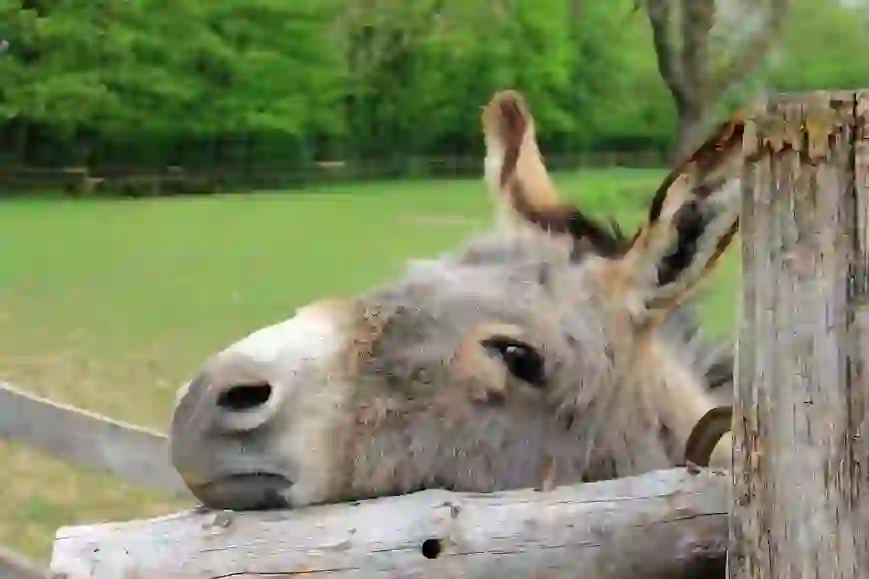
What do donkeys eat?
Donkeys in lush environments eat grass, while those in arid regions eat leaves from trees. They also consume hay and dried grass. This adaptability to different food sources allows them to survive in various harsh environments.
Domesticated donkeys also eat grass, hay, and sometimes fruits. Unlike other livestock, donkeys can be satisfied with smaller amounts of food, making them easier to maintain.
Donkeys' ability to withstand dry conditions allows them to go for extended periods without drinking water. They only need to drink every 2 to 3 days, reducing the need for constant hydration. This unique trait and their hardiness contribute to their popularity as livestock.
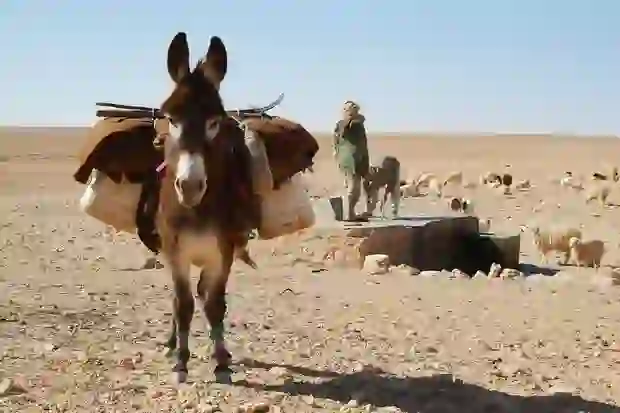
How do donkeys reproduce?
Donkeys are mammals, so they carry their young in their bellies. During the breeding season, male donkeys may fight with their teeth and hooves to win over a female.
After mating, female donkeys carry their foals for about a year, typically giving birth to one foal in the spring or summer. Newborn foals can stand and walk shortly after birth. It's unclear whether they imitate their mothers or if it's instinctual, but the ability to walk quickly is impressive. After two weeks, foals can run.
The nursing period lasts between 4 and 12 months, depending on the species. The maturity rate varies between males and females. Males mature in about 4 to 5 years, while females mature in 2 to 3 years. Females can give birth for the first time when they're about 3 to 4 years old, while males only reach adulthood around the same time.
In captivity, donkeys can live between 22 and 50 years, suggesting that the lack of predators and constant food supply might contribute to their longevity.
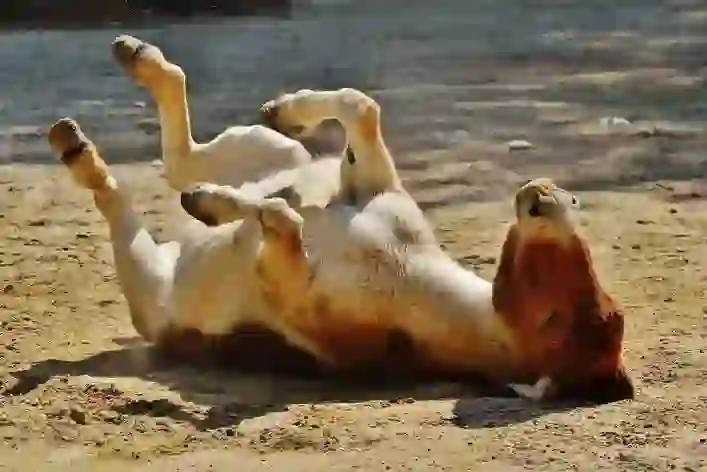
Why are there so many domesticated donkeys?
Donkeys were domesticated about 5,000 to 6,000 years ago from a species called the African Wild Ass. They were primarily used for transportation and labor. Although horses were also domesticated around the same time, there are differences in their temperament and usage.
Horses are known for being curious, sensitive, and responsive, whereas donkeys tend to be more stubborn and less communicative. Despite their reluctance to adapt to new things, donkeys are hardy and require less food, making them easier to manage.
Compared to horses, donkeys don't require as much communication to work, making them easier to handle for some tasks. This lower-maintenance characteristic may have contributed to their domestication.
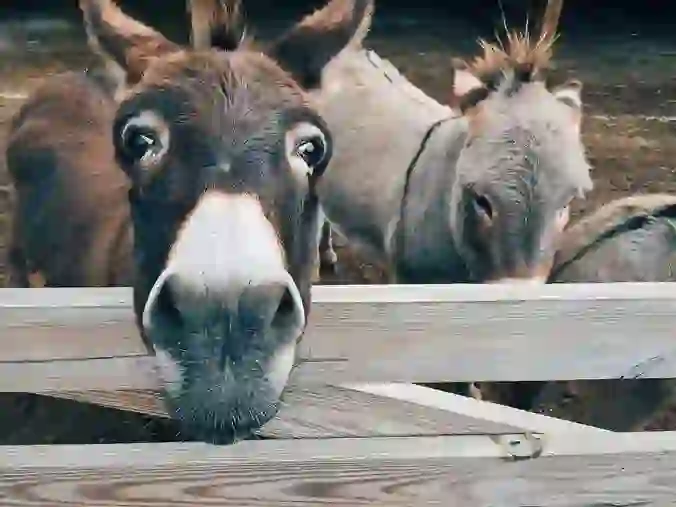
Do donkeys work as guards?
In countries like Switzerland and Germany, donkeys are sometimes used as guard animals instead of guard dogs, and they are known as 'guard donkeys.' These donkeys are raised among livestock to develop a sense of territory, making them ideal for guarding smaller farms or homesteads.
Guard dogs may bark loudly, causing noise disturbances at night. However, guard donkeys are quieter and only react when there is a threat. While they might be less effective against larger predators, their calmer demeanor makes them suitable for smaller settings.
Donkeys are inherently aggressive toward canine species, making them effective against wild dogs, foxes, and hyenas. By maintaining territorial instincts, guard donkeys can be effective protectors without causing noise issues.

Are there not many donkeys in Japan?
Donkeys are more commonly found in other countries as domesticated animals, while in Japan, they have not historically been kept as livestock. Though donkeys are known, they are not as commonly used as horses or cattle.
However, there was a time when donkeys were popular in Japan through a business known as the 'Donkey Bread Store,' a mobile bakery that sold bread from donkey-drawn carts. This business became popular in the 1930s in Sapporo and spread across Japan, continuing until the 1950s. After cars became more common, the donkey-drawn bread stores declined.
Although it was called the 'Donkey Bread Store,' some of these businesses used ponies instead of donkeys, leading to a common misunderstanding between the two animals.
Donkeys also appear in Japanese literature, music, and animation. Songs like 'The Sulking Donkey' and 'Run, Donkey!' as well as animations such as '3000 Leagues in Search of Mother,' 'The Story of Perrine,' and 'The Rose of Versailles' feature donkeys prominently. While donkeys are rare in Japan, they have had a cultural presence.

Are donkeys popular worldwide?
Donkeys have been referenced in many stories and proverbs across different cultures. In China, they appear in 'Romance of the Three Kingdoms,' and in Greek mythology, the saying 'The king's ears are donkey ears' comes from a story.
In many cultures, donkeys are used to symbolize foolishness or laziness. In Albania, there's a proverb that says, 'A donkey won't move without being beaten,' while in Bulgaria, they say, 'A donkey won't die from being scolded.' In Jamaica, it's said, 'A donkey's run stops quickly.'
In some cultures, donkeys are compared to horses, suggesting that donkeys are inferior or less valuable. In India, there's a saying that a donkey will never become a horse, and in Morocco, there's a proverb that suggests a donkey has replaced a horse.
Despite these negative connotations, donkeys have played a crucial role in the development of human civilization, indicating that they have been valued and appreciated in various ways.

Are donkeys endangered?
Some species of donkeys have been classified as endangered or have become extinct. In some countries, donkey meat is used for food, but typically, it is sourced from older donkeys no longer fit for work, suggesting that it's not the primary cause of their decline.
However, donkey skin is used in Chinese medicine to make a substance called 'ejiao,' which is believed to have health benefits for anemia, skin conditions, and other ailments. The growing demand for ejiao has led to overhunting, causing a decline in donkey populations.
In some cultures, donkey-based products are believed to have medicinal properties, such as soup made from boiled donkey, thought to cure ailments like tuberculosis and back pain.
This has had a significant impact on the population of donkeys, reducing their numbers drastically. From 210,000 donkeys in 1996, the population has dropped to around 146,000, with South Africa exporting about 1,500 donkey skins every year. This number is likely higher due to illegal smuggling.
Given donkeys' historical significance in aiding human development and their contribution to modern agriculture, efforts to protect them are crucial to preserving both their domesticated and wild populations.

Would you like to become a part of the 'Animalbook.jp'?
Turn your knowledge into Q&A and share it with the world. ※Publication will be activated after purchase. Let's share information together!
Donkey Type of List

- [African Donkey]
- Nubian Donkey
- Somali Donkey
- [Asiatic Donkey]
- Mongolian Wild Ass
- Kulan
- Onager
- Indian Wild Ass
- Gobi Wild Ass
- Syrian Wild Ass (Extinct)
- [Tibetan Donkey]
- Western Subspecies
- Eastern Subspecies
- Southern Subspecies
Information
Congratulations! You are the first commenter!

Create Your Favorite List!
Donkey
Save the animals you love! Build your own list to quickly revisit your favorites later.

Would you like to leave a comment?
※Please note: This is for the purchase of rights to post comments within the article.
Find Your Favorites!
Our shop offers a unique and attractive selection of goods themed around various animals.
Donkey References
Donkey Introduction of media used
Pixabayが提供するNicky ❤️🌿🐞🌿❤️の動画

Mario HagenによるPixabayからの画像

jacqueline macouによるPixabayからの画像

WOKANDAPIXによるPixabayからの画像

Help Enrich Our Animalbook.jp with Your Media!
We are constantly looking to expand and enrich our Animalbook.jp with amazing photos and videos of animals. If you have any media that you'd like to share, please contribute and help us showcase the beauty and diversity of the animal kingdom. Your submissions will be credited and featured in our encyclopedia, reaching a wide audience of animal lovers.


















